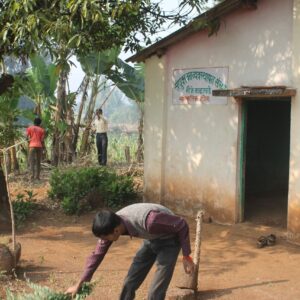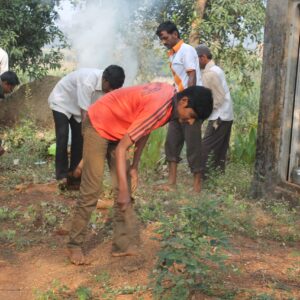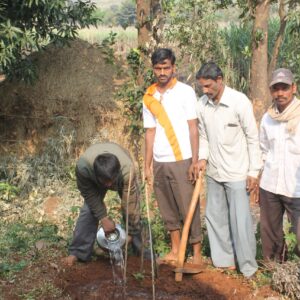Environmental Protection
Forest Fire
The Fires in the forest are may be natural or Manmade. But is very harmful for the environment and Biodiversity.
Fires in forests and other vegetation release polluting particulate matter, carbon monoxide and oxides of nitrogen, sulphur dioxide and organic compounds. Fine airborne particles have potentially detrimental health effects because they can penetrate deep into the human lungs and causes the respiratory and cardiovascular diseases.
Wildfire can be deadly, destroying homes, wildlife habitat and timber, and polluting the air with emissions harmful to human health .Fire severity can affect soil biota, reducing seedling performance.
Major factors leading to biodiversity loss are habitat loss and degradation. Wildfires destroy not only flora (tree, herbs, grassland, forbs, etc.) and their diversity but also considerable long term negative impact on fauna including wild endangered species. Repeated fires can convert some shrub-lands to grass and fire exclusion converts some grassland to shrub-land and forest.
The fire kills the animals, burns the plants. Animals, birds, loose there shelters, food which cause the huge impact on Biodiversity. The biggest effect wildfire has on wildlife habitat is by altering the three things animals need most: food, water, and shelter. Tender understory plants and shrubs that provide food are lost, and this loss often results in wildlife moving away to areas where food, water, and shelter are more readily available.
Our organization always educates and motivates the peoples about the Forest Fire, to do not burn the forest. Fire is caused when a source of fire like naked flame, cigarette or bidi, electric spark or any source of ignition comes into contact with inflammable material.
When we receives the Fire call from forest or when we come to know about the fire our organization always goes there and help to quench the fire. Our team always helps to save the wildlife and Biodiversity. So many times our organization appreciated by Government (Forest Department) and Social organizations.
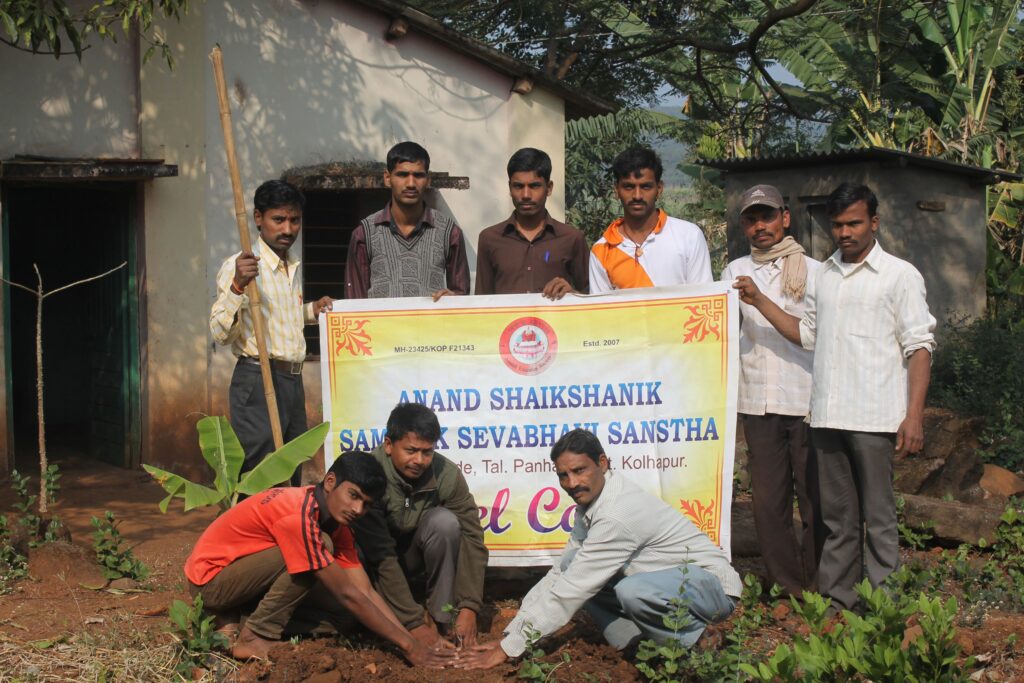

Plantation
Trees or plants are plays the important role for the Biodiversity.
Plantations of trees are important as they improve the life and fulfill essential needs of mankind. During photosynthesis, the trees breakdown food materials and consume carbon dioxide. Resultantly with the help of sunlight, the trees produce carbohydrates.
Trees help to combat global warming by absorbing carbon dioxide, removing and storing carbon while releasing oxygen back into the air. They also reduce wind speeds and cool the air as they lose moisture and reflect heat upwards from their leaves.
Other environmental benefits include the fact they help to prevent flooding and soil erosion, by absorbing thousands of liters of storm water.
Trees help to improve air quality by intercepting and trapping dust and other pollutants from the air. The shade of trees also provides a useful barrier to harmful ultra-violet radiation from the sun.
But it’s not just our physical health that benefits, our mental health does too. When surrounded by trees or taking part in nature-based activities, stress and depression levels can be significantly reduced.
So, as you can see, humans, animals and the environment depend upon trees for survival. Therefore, as deforestation continues, we must put back what we’re taking away. By planting more trees, it will contribute to global reforestation efforts, restoring lost forests, repairing damaged ecosystems and mitigating climate changes.
Our organization always educates and motivates the peoples about the importance of the plantation and always organizes the plantation programs. We always include to our students and native peoples in the plantation program, that they can know the importance of the trees for the Earth.
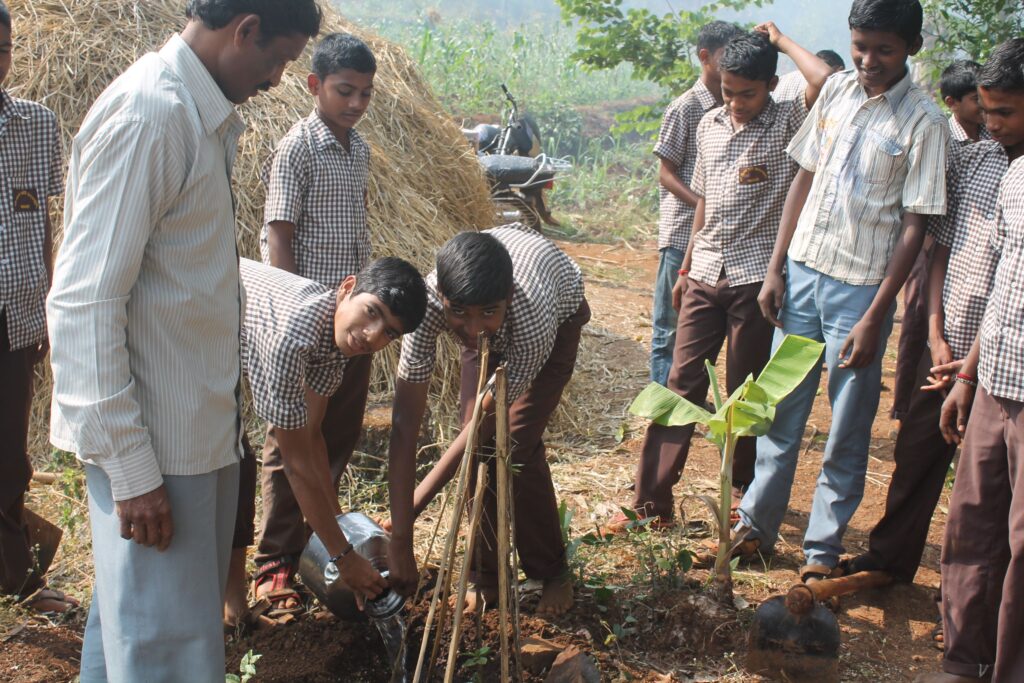
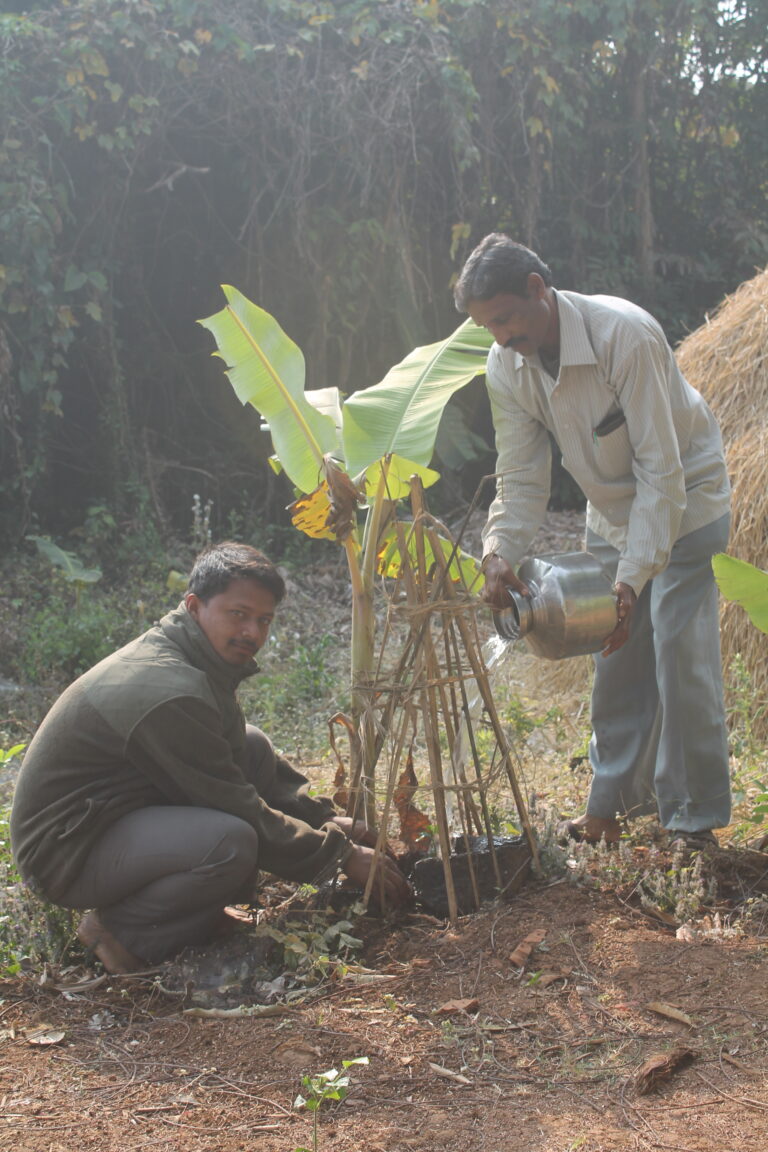
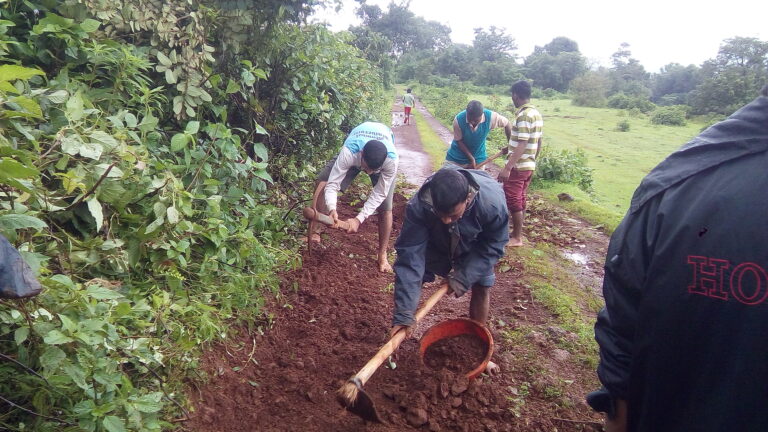
Cleaning Campaign
Cleanliness is most important for physical well-being and a healthy environment. It has bearing on public and personal hygiene. It is essential for everyone to learn about cleanliness, hygiene, sanitation and the various diseases that are caused due to poor hygienic conditions.
Cleanliness is next to Godliness. We’ve heard this phrase many times. But do we follow this? A lot of people don’t, even though we should. However, some of us don’t even respect the people who clean the trash. There are a lot of cons for not maintaining cleanliness. Cleanliness should be followed by everyone.
Cleanliness means that there is no dirt, no dust, no stains, and no bad smells. The goals of cleanliness are health, beauty, absence of offensive odor and to avoid the spreading of dirt and contaminants to oneself and others.
As like our surrounding we keep the forest and water bodies clean, however people throw all their garbage in surrounding, which make it dirty. In our everyday life, we use plastic, forget that they cause so much pollution to our environment and make it dirty. Also they are not decomposing by microorganisms present in soil.
Now where we look around, we saw plastic bags only because of increase in demand of their use day by day. Also in many historical places we can see them, due to these plastic bags their beauty was finishing.
Many stray cattle’s and wild animals eat plastic, due to which their food pipe get block; resulting in their death.
As the water resources are decreasing on earth we should keep them clean.
Our organization always tries to clean the forest and water bodies and educates and motivates the peoples and students about the importance of the clean earth, which plays important role in Biodiversity.


